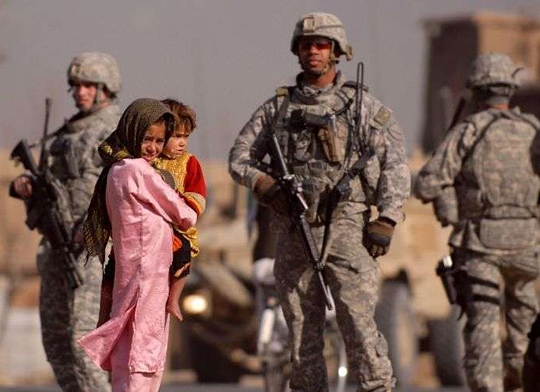Originally appeared on The American Conservative.
The president’s interview on Face the Nation this morning contained some remarkable revisionism on his part on the Iraq war:
MARGARET BRENNAN: I want to move on here but I should say your intel chiefs do say Iran’s abiding by that nuclear deal. I know you think it’s a bad deal, but–
PRESIDENT DONALD TRUMP: I disagree with them. I’m- I’m- by the way–
MARGARET BRENNAN: You disagree with that assessment?
PRESIDENT DONALD TRUMP: –I have intel people, but that doesn’t mean I have to agree. President Bush had intel people that said Saddam Hussein–
MARGARET BRENNAN: Sure.
PRESIDENT DONALD TRUMP: –in Iraq had nuclear weapons- had all sorts of weapons of mass destruction. Guess what? Those intel people didn’t know what the hell they were doing, and they got us tied up in a war that we should have never been in. And we’ve spent seven trillion dollars in the Middle East and we have lost lives–
MARGARET BRENNAN: Do you trust your national security adviser John Bolton because he worked in the Bush administration?
PRESIDENT DONALD TRUMP: I do, and I respect John and John is not one of the people that happened to be testifying or on.
Trump’s belated criticism of the Iraq war was one of the things that seemed to set him apart from most other Republican candidates on foreign policy during the 2016 primaries, so it is telling that he is now regurgitating the pro-war dead-ender narrative that “faulty intelligence” was to blame for the war. No doubt that is thanks in no small part to Bolton, who remains as supportive of the Iraq war now as he was sixteen years ago. Few people have less credibility on matters of nonproliferation and disarmament than Bolton, so of course Trump trusts him above everyone else. No wonder the president is shredding every nonproliferation and arms control agreement we have left.
Continue reading “‘Cooking’ and Ignoring Intelligence on Iran”





